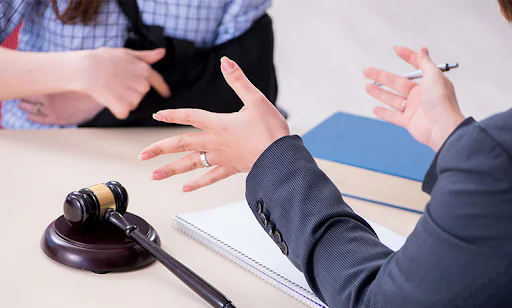The choices you make right after the accident can define your legal, financial, and personal situation in the future. Most advice on accidents primarily focuses on what to do after a car accident but it is equally as relevant to know what to avoid doing.

In this article, you will be able to extensively comprehend more pertinent information regarding what you shouldn’t following a car accident.
Fleeing the Scene
Leaving the scene of the accident has the appearance of guilt and makes one uneasy. You should avoid moving from the scene, evaluate the danger level and wait for police or EMS to attend to the scene. However, in the case that you are overwhelmed with panic or fear of what might ensue, it is very important not to attempt to exit the scene – this will only complicate matters even more in the times to come.
Not Calling Law Enforcement
Another mistake made by drivers is not informing the police of the accident when one occurs. Some drivers may deem it irrelevant if the harm caused is small, or they may want to resolve it themselves with the other driver. That said, the failure to call the police can be costly. The police report is an essential element that captures information regarding the accident, critical for insurance purposes or legal actions.
If the other driver wants that they do not involve the police, then you should go ahead and call them especially if there are injuries or a lot of damage to property. It is also important that an officer is present to write down all the details due to the fact that once the incident has occurred, each party may have his or her own version of the incident. In the states, reporting the accident is mandatory if there are injuries or extensive property damage, meaning that if you fail to report the accident, you might encounter legal issues.
Admitting Fault
During the heat of the moment some may automatically say sorry or others may quickly accept blame even if they don’t know who is to blame. However, stating that you are at fault can be detrimental especially when emotional charges might cloud the events that led to an accident and its aftermath. It also means that when you accept blame or find yourself at fault, you risk losing your insurance payout as well as compromising your case if it goes to trial. In other words, to hear the word ‘fault’ means understanding that it is not your role to assess these things; it belongs to lawyers, police officers & insurance adjusters.
Not Collecting Evidence
Another mistake that investigators tend to make is to forgo accumulating proof at the scene of the accident. It is important to protect your safety as well as everyone else’s after an accident or incident has occurred. Nevertheless, in most cases, once the situation is brought back into check, it is vital to gather as much documentation as possible.
This involves the photographing of all the vehicles in the accident scene, all the visible bodily injuries, the condition of the road, and any other abnormality that led to the crash. If there are witnesses to an incident, requesting their details in case they are required at a later time is advisable. In this context, many of those who have experienced such events make the assumption that police or insurance organizations are going to collect all the needed information themselves, which is not entirely true.
Skipping Medical Attention
One mistake that can be lethal is neglecting or postponing a visit to the doctor after an accident. In many cases, an individual may walk away from the accident and they feel perfectly healthy, thus will not go to a hospital, especially if the accident seemed so insignificant.
Yet, there are some types of injuries, for instance, whiplash, internal bleeding and concussions, which might not manifest themselves immediately but may be severe if not treated. Further, lack of medical treatment may also reduce your chances of getting compensation once you are injured later on. If there is no official medical record of a person being injured, insurance companies may dispute the severity of those damages or their relation to the accident.
Failing to Notify Your Insurance
Another misstep that can lead to issues is not informing the insurance company as soon as possible. Some drivers do not report a crash because they expect their premium to be raised or they think they can deal with the issue with the other party personally.
But, every insurance policy contains terms that demand you report an accident within a particular period; neglecting this might cause your claims rejection or policy cancellation. Regardless of whether or not the effects are minimal or you are offered reimbursement by the other party, you need to inform your insurer. The other driver may refuse to pay later or the extent of the damage may be revealed to be more severe than was thought earlier.
Talking Too Much at the Scene
In any given car accident, the victims can say anything when they are overwhelmed by emotions especially when the accident has caused injuries among the parties involved. However, it is important not to over speak at the scene of events, and this means not only talking too much, but also addressing the other driver, witnesses, or the police too much.
It is important not to say much about the collision right after the accident as it may be used against you in court. For instance, a stone thrown to the car windscreen stating “I didn’t see you coming” or apologetic words like “I’m so sorry” could be taken to mean negligence of the accident. As much as possible, limit the conversation and always stay on message – the name exchange, phone number exchange, and insurance details.
Conclusion
Car accidents result in stressful situations which may lead to crucial errors after the accident has occurred. Yet, avoiding such actions can spare you legal issues and, in addition, prevent greater losses with your partner. Steering clear of common errors such as fleeing the scene, not calling the police, apologizing to the other party, and forgetting to secure evidence or get medical treatment will assist in safeguarding your rights and guarantee that you have enough evidence to back up your claims.
Consequently, by adhering to the rights procedures and steering clear from those pitfalls, the individuals can manage the aftermath of a car accident with more certainty and improved results.











